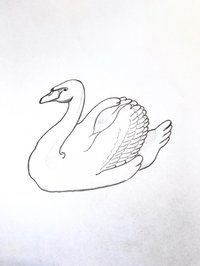About Louis Hjelmslev and his circle

The background for Louis Hjelmslev's work was a significant line of gifted linguists in Copenhagen, whose ideas he took as a starting point. Otto Jespersen and Holger Pedersen were the most significant. But Hjelmslev's immediate contemporaries also mattered. With inspiration from similar circles in Prague, Paris and Geneva, Hjelmslev together with a group of younger graduates and students set up an association for linguists in Copenhagen. The circle still exists under its French cover name Cercle linguistique de Copenhague, but in everyday speech it is simply called Lingvistkredsen. Hjelmslev was the initiator and co-founder of Lingvistkredsen and served as chairman for many years.
Read the monographic series associated with Lingvistkredsen: Travaux du Cercle Linguistique de Copenhague. You can also download digitalized versions of selected volumes.
In Lingvistkredsen, several meetings were held during Hjelmslev's time (and since), and these meetings were a basis for all those interested in language and linguistics in the nation. From the first meetings of Lingvistkredsen, they worked on a comprehensive terminological and systematic project to renew linguistics. The purpose was to exploit the achievements of Ferdinand de Saussure in particular, and committees were established for many sub-areas of linguistics.
Project Infrastructuralism and Lingvistkredsen

"Ceci, c'est le cygne linguistique" - A witty Louis Hjelmslev at the 25th Jubilee of the Linguistic Circle of Copenhagen
Through Project Infrastructuralism, we get the opportunity to see theory development as part of a collective work under the auspices of the Linguistic Circle with some of the most important linguists within structuralist linguistics from the 20th century as protagonists. By making the archive material available, we have the opportunity to take a closer look at how relevant issues have been dealt with before the solutions to the issues in question were published. In particular, we get an insight into the development towards a Glossematics through the exchanges of letters. If you want to work further, you can look at the minutes from the meetings of the Linguistic Circle. They have great relevance for the philological perspective on the history of linguistics. Project Infrastructuralism also contains important keywords for the history of linguistics in a philological perspective.
